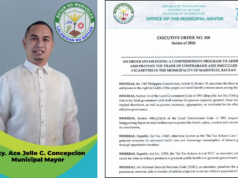Whether you’re a Gen Z or a young millennial navigating life’s challenges, don’t let your youth hold you back from building a strong financial foundation. Your future self will thank you if you take the first steps towards financial planning now.
InLife’s Financial Independence Talk Series zoomed in on the financial needs and goals of Gen Zs who were born from 1997 to 2010, and young millennials who were born from 1989 to 1996. Enrique F. Fausto, Chief Financial Architect and Director, IFE Management Advisers, Inc. walked them through budgeting, saving and investing to take control of their financial future.
Define your relationship
Fausto explained that it is important to do a diagnostic check on money matters to clarify and quantify goals and consequently chart one’s life plan or game plan.
“What is your current relationship status with money?” he asked during InLife’s webinar entitled Wealth Journey: Your Future, Your Rules. He noted that witty but true answers to this question range from MU or mutual understanding, unlabeled, not close, complicated or even toxic relationship.
Fausto then asked these questions: How do you want your relationship to improve? Where do you want it to go in the next three or six months, or even by next year?
He pointed out knowing the destination would help identify the steps to improve one’s relationship with money.
In a relationship, people spend more time together to get to know each other better. Fausto explained that when it comes to money relationships, one must take time to make a personal financial statement to understand one’s self better. He advised making an income and cash flow statement which means income minus all expenses equals savings.
Fausto then challenged the young generation to pay themselves first and compute: income minus savings equals expenses.
“Create a conscious or intentional spending plan, or simply be very mindful. Let’s target 20% of income as savings, pay ourselves first for goals and later bring that savings level up to 50%. When you start out early and young, as you get older and your income increases, you want to increase that savings over time,” Fausto said.
A personal balance sheet comes next. “List all your assets meaning everything that you own. Then minus any liabilities or anything that you owe anyone or any company. That equals to your equity or net worth or net asset value. This is your true measure of wealth, and this is the number that you want to track overtime to see if you are really progressing,” Fausto said.
Go on a money date
Fausto further advised the young generation to set a money date to clarify and quantify their goals of opening a business, starting a family, or preparing for early retirement.
Fausto explained that consistent saving is also critical as one moves from being single to being married and then to being a parent. He added that it is important to build an emergency fund equivalent to six times one’s monthly expenses.
Focus on your own thing
When it comes to retirement, Fausto discussed the three-legged stool which illustrates three funding sources: the Social Security System (SSS) or Government Service Insurance System (GSIS) benefits; company retirement plan; and personal savings and investments.
Fausto said social security benefits are not enough to fund expenses during retirement. He added that since young millennials and Gen Zs do not usually spend 10, 20 or 30 years in the same companies unlike their parents, pension may not also be enough.
“Focus on your personal savings and investments, your own thing,” Fausto said, adding that the retirement fund factors in your best life during retirement.
While it may seem daunting to build a retirement fund, he advised the younger generation to think of ways to increase their income and savings over time and manage expenses well. And when it comes to investing, he pointed out that it should be goal-based. “This means you should match short-term goals like an emergency fund or a travel fund to safer low-risk, low-return investments, and long-term goals like retirement with higher risk investments that offer higher potential return.”
“Think about your own life plan so you can then live out the life that you want. Be the master and not the servant of money,” he stressed.
Retire without worries with InLife. Take the first step to financial freedom, visit https://www.insularlife.com.ph/online-financial-calculator.





